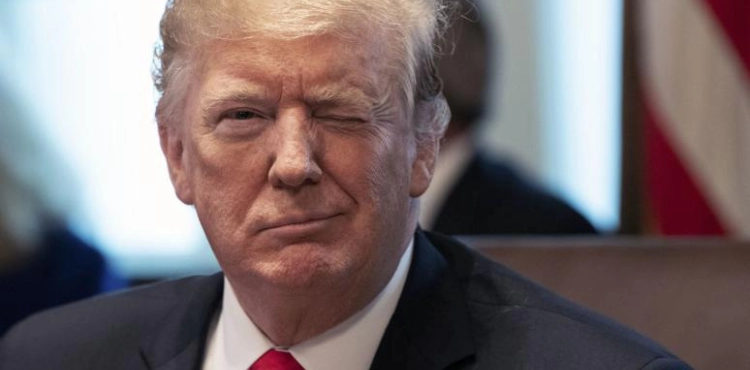US President Donald Trump confirmed on Tuesday that he wants by mid-April to ease the closures imposed in an effort to contain the emerging corona virus in the United States, despite the sharp rise in deaths caused by The virus.
"We have to get back to work, sooner than people think," Trump said on Fox News.
While acknowledging that the restrictions would continue for a little longer than the originally planned 15 days, he promised to end the closure and "quickly".
"A lot of people agree with me," Trump told Fox News. "It is not normal for our country to be shut down. We could destroy a country if we closed it that way," adding that he would reassess the consequences of the closure next week.
He repeatedly said, "It would be a pleasure for me to open the country and make it start by Easter," which falls on April 12th, stressing despite the reservations of many scholars and officials that this deadline is realistic provided that people return to work and commit to "not mixing."
And while 40% of Americans were forced to stay in their homes, or were about to do so, with the intensity of the measures varying from state to state, the American president did not fear his extension.
Health experts have advised that these measures are the only way to prevent an outbreak of rapid transmission which can cause death.
Even the Ministry of Defense itself was less optimistic and talked about the possibility of a crisis lasting "several months" with the expectation of a return to normalcy by June or July.
The World Health Organization warned Tuesday that the United States could bypass Europe soon and become the new epicenter of the epidemic globally.
"We are seeing a very strong acceleration in the number of cases in the United States," a WHO spokeswoman said.
On Tuesday, in the early afternoon, the United States recorded 600 deaths and more than 50 officially declared cases of the Covid-19 virus, according to the latest figures released by Johns Hopkins University. This now makes it the third country in the number of cases recorded after China and Italy, with an American outpost in New York, where the majority of deaths were recorded.
State Governor Andrew Como, who is on the frontline of the epidemic in America´s largest city and the cultural and economic heart of New York, warned that "the rate of new infections doubles every three days ... It is a significant increase," estimating that the epidemic may peak "in Within 14 to 21 days, "i.e. closer than expected.
So this state, with a population of nearly 20 million, is preparing for the worst and continues to order medical equipment from the federal government, starting with thousands of breathing apparatus.
It also expected to increase its need from hospital beds to 140,000, while the first emergency hospital will start operating within about eight days in Manhattan.
Despite this race against time, the President of the United States seemed to have changed his rhetoric after he said last week that he is "in a state of war" against this "invisible enemy". The magnitude of the threat.
Thus he returned to comparing the current pandemic with seasonal flu. He said during his interview, which took place in the form of a chat with a Fox reporter at the White House, that he believed the closure was an exaggerated response, reiterating that "the treatment is worse than the disease itself."
"We lose thousands and thousands of people every year because of the flu, and we don´t shut down the country ... ... and we lose more than that in road accidents. We did not say to the car manufacturers: Stop making cars. We don´t want more cars."
With his campaign suspended for the November elections, Trump yearns to return to the election battle that has shaped a strong economy and declining unemployment, the most prominent slogan ahead of the outbreak of the Covid-19 virus.
"We cannot lose a company like Boeing, we cannot lose some of these companies. If we lose those companies then we are talking about hundreds of thousands of jobs, millions of jobs," he said.
He also said, "We can lose a certain number of people due to the flu. But we may lose a greater number if we dump the country in a great contraction."
"You can destroy a country by closing it in this way," he said, adding that "severe recession or depression" could kill more people than the epidemic could kill, especially if the economic crisis pushed "thousands to commit suicide."
President Trump urged Twitter in bold letters to Congress to "immediately" reach an agreement on a plan to revive the economy, which could be worth up to $ 2,000 billion, after four days of intense negotiations.












